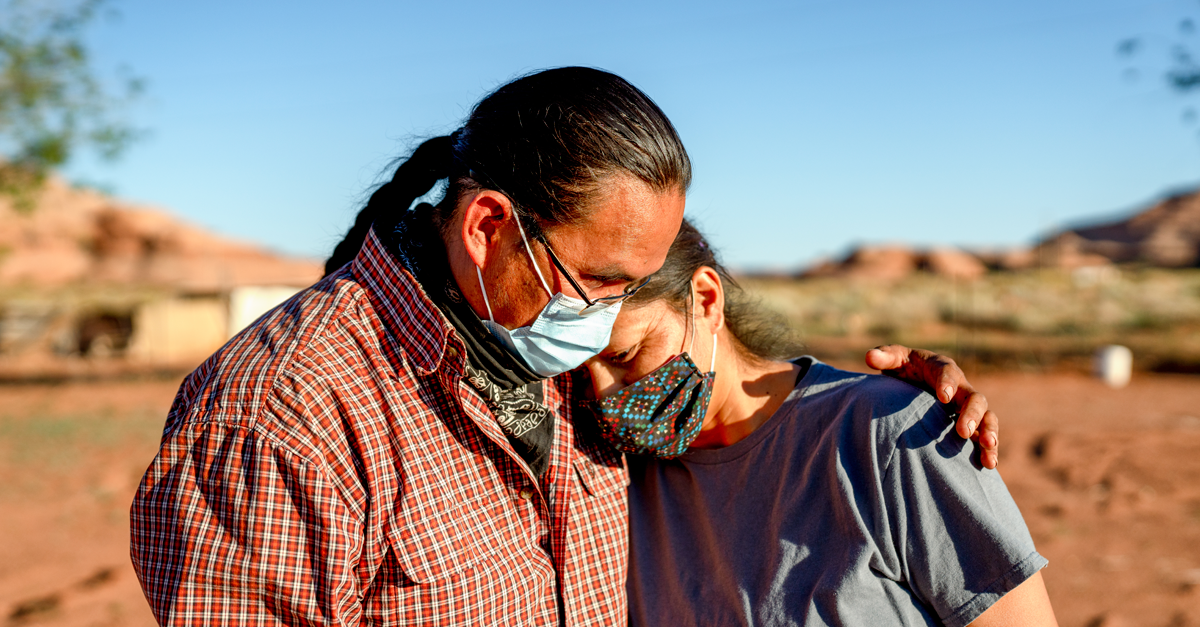Full-text of the article is available for this language: Español.
Talking about COVID-19: contributions to the construction of a collective memory of the syndemic through the lens of food
Received:
7 April 2022,
Accepted:
4 November 2022,
Published:
14 November 2022

Abstract
This article explores the question of why the nine pandemics prior to COVID-19 – which have affected millions of people since the second half of the 20th century – were not recorded in collective memory despite their magnitude and extent. Thus, it proposes a reading of the pandemic as one component of a wider syndemic made up of contagious diseases, climate change, and malnutrition. This piece offers a narrative of the origins, development, and prospects of the pandemic within the dynamics of the global food system and national economic and political systems, highlighting components and connections. It includes a warning that – along with climate change and malnutrition (undernourishment-obesity) – pandemics are known and expected outcomes of the workings of a socio-political system that, as in the case of other components of the syndemic, by naturalizing causes and individualizing consequences, conspire against the creation of narratives that go beyond cosmetic changes.
References
1. Organización Mundial de la Salud. Brote de enfermedad por Coronavirus (COVID-19) [Internet]. Ginebra: OMS; 2019 [citado 13 oct 2022]. Disponible en: https://tinyurl.com/mpc37jhx.
2. Fecher B. Embracing complexity: Covid-19 is a case for academic collaboration and co-creation. Elephant in the Lab [Internet]. 2020 [citado 13 oct 2022]. Disponible en: https://tinyurl.com/2xwr5me3.
3. Almeida-Filho N. Towards a unified theory of health-disease: II Holopathogenesis. Revista de Saúde Pública. 2014;48(2):192-205.
4. Singer MA. A dose of drugs, a touch of violence, a case for AIDS: conceptualizing the SAVA syndemic. Free Inquiry in Creative Sociology;1996;24(2):99-110.
5. Almeida-Filho N. Modelagem da pandemia Covid-19 como objeto complexo (notas samajianas). Estudos Avançados. 2020;34(99):97-117.
6. Swinburn BA, Kraak VI, Allender S, Atkins VJ, Baker PI, Bogard JR, et al. The Global Syndemic of obesity, undernutrition, and climate change: The Lancet Commission report. The Lancet. 2019;393(10173):791-846.
7. Spinney L. El jinete pálido: La Gripe Española de 1918 y como cambió al mundo. Barcelona. Crítica; 2020.
8. Roediger HL, Abel M. Collective memory: a new arena of cognitive study: Trends in Cognitive Sciences. 2015;19(7):359-361.
9. Stone CB, Hirst W. Forgetting to form a collective memory. Memory Studies. 2014;7:314-327.
10. Foucault M. Microfísica del poder. Buenos Aires: Siglo XXI Editores; 2019.
11. Menéndez EL. Consecuencias, visibilizaciones y negaciones de una pandemia: los procesos de autoatención. Salud Colectiva. 2020;16:e3149.
12. Organización Mundial del Comercio. Explicación de la Declaración de Doha relativa a los ADPIC [Internet]. 2001 [citado 13 oct 2022]. Disponible en: https://tinyurl.com/46mf35kr.
13. Sacasas LM. Narrative collapse: The convivial society [Internet]. 2020 [citado 11 oct 2022]. Disponible en: https://tinyurl.com/37xmxs62.
14. Abud C. El dolor magnificado de la muerte en pandemia. Intramed [Internet]. 2021 [citado 13 oct 2022]. Disponible en: https://tinyurl.com/yj2te9fn.
15. Aguirre P. Una historia social de la comida. Buenos Aires: Lugar Editorial; 2017.
16. Aguirre P. La precarización alimentaria de la Argentina ante la Pandemia de COVID19. En: Vallejo G, Miranda M, Álvarez A, Carbonetti A, Di Liscia MS, (eds.). La historia de la salud y la enfermedad interpelada: Latinoamérica y España (siglos XIX-XXI). Remedios de Escalada: De la UNLa - Universidad Nacional de Lanús, 2022.
17. Aguirre P. La fuerza de lo pequeño: Las epidemias en la historia de la cultura. Intramed [Internet]. 2020 [citado 13 oct 2022]. Disponible en: https://tinyurl.com/2nx2kuus.
18. Swinburn BA, Sacks G, Hall KD, McPherson K, Finegood DT, Moodie ML, Gortmaker SL. The global obesity pandemic: shaped by global drivers and local environments. The Lancet. 2011;378(9793):804-814.
19. Organización de las Naciones Unidad para la Alimentación y la Agricultura. El estado mundial de la pesca y acuicultura [Internet]. 2020 [citado 13 oct 2022]. Disponible en: https://tinyurl.com/2msd4eyb.
20. Organización de las Naciones Unidad para la Alimentación y la Agricultura. Perspectivas de largo Plazo: Agricultura mundial hacia los años 2015-2030 [Internet]. 2019 [citado 13 oct 2022]. Disponible en: https://tinyurl.com/8jcfukbf.
21. Worm B, Barbier EB, Beaumont N, Duffy JE, Folke C, Halpern BS, Jackson JB, Lotze HK, Micheli F, Palumbi SR, Sala E, Selkoe KA, Stachowicz JJ, Watson R. Impacts of biodiversity loss on ocean ecosystem services. Science. 2006;314(5800):787-790.
22. Elias N. Sociología fundamental. Barcelona: Gedisa; 1982.
23. Santos BS. Una epistemología del sur. México: CLACSO, Siglo XXI Editores; 2009.










